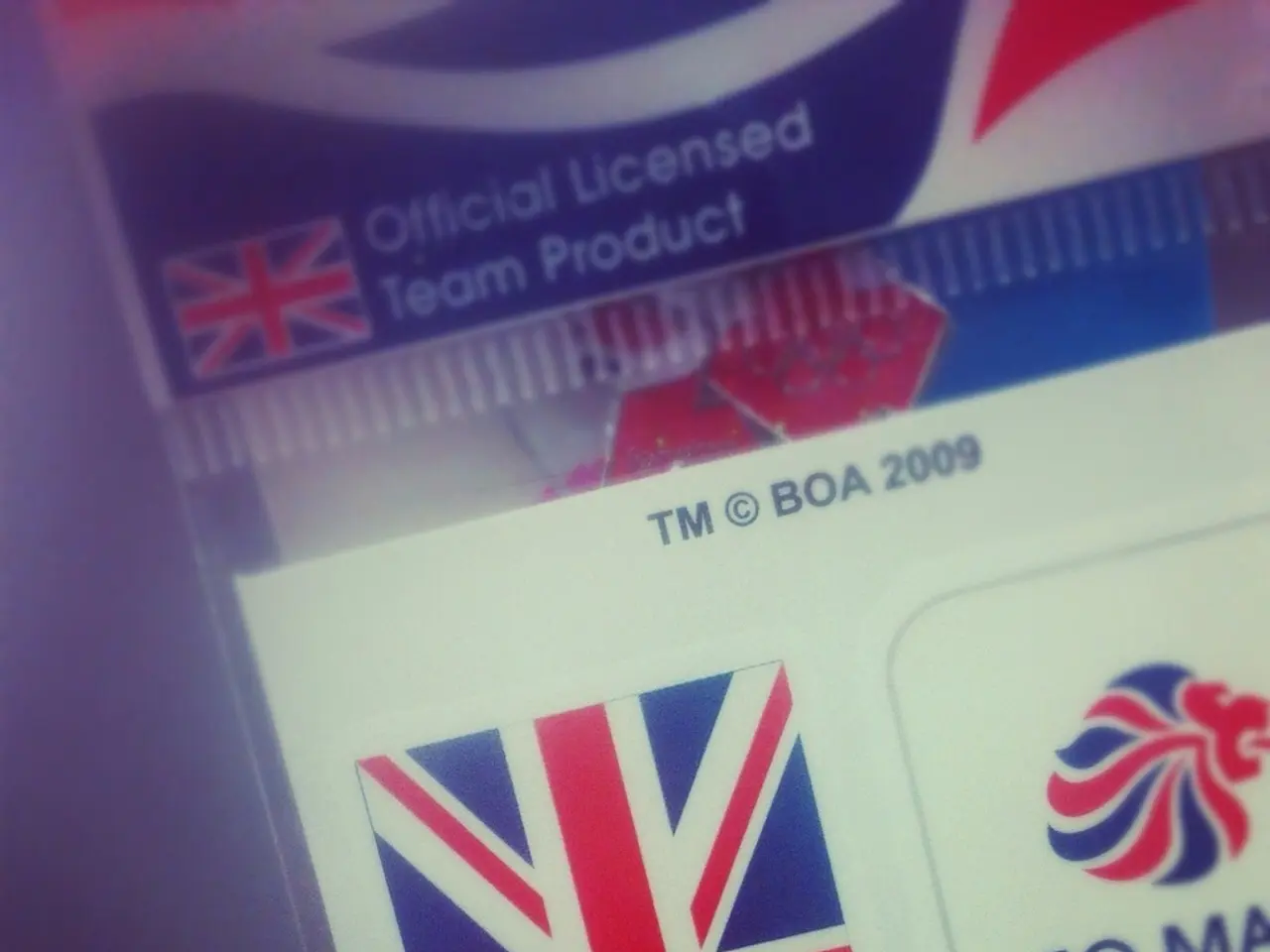Roadmap to Thriving as a Freelancer: Tips and Tricks for Independent Work
If you fancy being your own boss, having the freedom to work anywhere, and tackling challenging projects, becoming a digital freelancer might be the perfect career choice for you!
Digital freelancing allows you to forge relationships with clients, set your own hours, and decide how much (or little) you work. You choose your rates and can normally work from practically anywhere on the planet. Sounds like a dream, right? But keep in mind that freelancing comes with its downsides. Since your income depends on your work, there's no guaranteed pay; you'll need to plan ahead for slow periods. You may also encounter demanding clients who can make or break your income and reputation. So, is freelancing the right path for you? Let's delve deeper with our guide to becoming a successful freelancer, regardless of the industry.
What is freelancing?
In simpler terms, freelancers are self-employed individuals who don't commit to a single employer for a long term but might work closely with particular clients. The term 'freelancer' is typically used to describe individuals in the creative industries, accounting, and bookkeeping sectors. For those in the trades or manual labor, the term 'independent contractor' is usually used instead.
Common freelancer industries include music, web design, copywriting, computer programming, graphic design, translation, SEO consultants, film and video production, voiceovers, and more.
Starting Your Freelancing Journey
Before jumping into self-employment, it's essential to prepare for the realities of freelance life. Ask yourself if you can handle the responsibilities and financial uncertainty, especially when starting out. Can you manage without a regular income? Are you willing to hustle to ensure bills are always paid? Remember to save for your pension, savings, and insurance. Develop self-discipline as you'll be your own boss, with no one monitoring your progress or ensuring you're doing a good job. Consider what you're worth and scale your rates accordingly – research what other freelancers in your industry with similar experience levels charge to set a starting point.
Decide how you'll charge clients and get paid, whether it's hourly, a flat project fee, or an invoicing platform. Draft a business plan to iron out the minute details of your course of action. Remember to think about your reputation and focus on building a stable of reliable clients by delivering high-quality work on time and to brief.
Finding Freelance Work
When starting out, you'll need to find clients that consistently provide work. Snagging repeat clients will help grow your income. Here are some methods to find new clients as a freelancer:
- Register on freelancing platforms like People Per Hour, Upwork, or Fiverr. Be prepared for stiff competition as more experienced workers might offer lower rates, but as you gain positive reviews, clients will come directly to you. Don't forget about specialized platforms like ProCopywriters, 99Designs, or Behance, as they can help you build your portfolio.
- Blog frequently on your website. Even though it might take time for you to rank highly on search engines, regularly posting valuable content generates traction. Integrate links to your social media profiles. Seek out guest blogging opportunities, podcast spots, and other chances to get your website mentioned.
- Check job listings on sites like Indeed, Worksome, and Facebook.
- Cold call or email clients and agencies you're enthusiastic about and believe would be a good fit for your skillset. Make sure not to violate GDPR guidelines when reaching out.
- Leverage word-of-mouth by asking for referrals and recommendations from your industry contacts. Promote yourself through your personal networks, post on Facebook, and make sure to make posts shareable. As your career progresses, add a line to your email signature encouraging referrals. Offer incentives like a referral bonus to both existing clients and new ones who they generate.
Joining specific Facebook groups dedicated to your niche can also lead to freelance gigs. Don't forget the power of social media in connecting with potential clients and discovering opportunities. Spend most of your time on LinkedIn, a trusted professional network, as many companies turn to it to find freelance help. Regularly post updates, links, and interact with others in your field.
Types of Freelancers
Freelancers come in various shapes and sizes, including:
- Independent Contractors: These individuals only rely on their freelance work for income and may work on long-term projects for clients. About 40% of freelancers fall into this category.
- Moonlighters: These folks use freelancing as a side hustle to supplement their regular income, with most working on small projects during evenings and weekends.
- Diversified Workers: Comprising about 18% of the freelance workforce, these individuals balance multiple jobs, part-time work, one-off gigs, and freelance assignments to earn a living.
- Temporary Workers: These freelancers take on temporary employment when available, but it's not their primary focus.
- Freelance Business Owners: Originally independent contractors, they scale up to hire employees and grow into a business.
Knowing which type suits your style will help you tailor your approach to the freelancing world.
Legal Considerations of Freelancing
Familiarize yourself with the legal aspects of freelancing to ensure you're always on the right side of the law:
Tax Obligations as a Freelancer
As a freelancer, you're responsible for your income taxes each year. Your profit, not gross income, is subject to applicable income tax and Class 1 National Insurance. Many freelancers hire an accountant to help navigate the tax complexities. Remember to save all receipts for your accountant to calculate deductions.
National Insurance Contributions
Freelancers still need to pay National Insurance. You'll pay Class 2 (£2.80 per week if your profits are £5,965 or more, usually paid monthly) or Class 4 NI (9% if you make profits between £8,060 and £43,000) on self-employed earnings.
Insurance Requirements
For most online freelance work like graphic design, writing, or IT support, insurance isn't necessary. However, if you go into someone's home or business to carry out work, such as a freelance builder, cleaner, artist, or painter, insurance is a good idea. Common types of insurance for freelancers include:
- Professional Indemnity Insurance: Protects against common mistakes or infringing on copyright and costs around £170 per year.
- Public Liability Insurance: Essential for workers that deal directly with clients, such as freelance photographers, cleaners, artists, painters, and builders.
Registering Your Freelance Business
You'll need to decide how to set up your freelance business: sole trader, partnership, or limited company. Each has pros and cons, affecting how you do your accounting and pay your taxes.
Writing an Invoice for Freelance Work
Every freelancer has a different invoicing method. You can create a simple template on Google Drive and request payment directly into your bank account or PayPal account, or use an online invoice generator. Some invoice generators like FreshBooks are integrated with bookkeeping software for easy tracking of receipts and accounts.
Your invoice should include information like your company name, invoice number, date, payment methods, relevant banking details, total cost, payment terms, VAT number (if applicable), and project details.
Staying Motivated as a Freelancer
Every freelancer finds motivation in different ways. Some need a regular office routine, while others can work from home in their pajamas. Find your 'sweet spot' and let it inspire you. With the right attitude and hard work, freelancing can provide you with the freedom, flexibility, and income you desire.
Is Freelancing the Right Fit for You?
For those seeking flexibility, freedom, and regular challenges, a freelance career could be the perfect fit. Weigh the pros and cons to determine if the freelance lifestyle aligns with your goals and preferences.
Sources1. https://en.wikipedia.org/wiki/Freelancer2. https://www.simplybusiness.co.uk/knowledge/articles/2019/07/how-to-become-a-freelancer-in-the-uk/3. https://www.theukdomain.uk/how-to-find-work-as-a-freelancer4. MacDonald, S. (2019). GDPR for Sales: How to Sell Without Breaking the Law! [online] Available at: https://www.superoffice.com/blog/gdpr-sales/5. Tapia, A. (2017). 5 Types of Freelancers; Which Are You? [online] The Balance Small Business. Available at: https://www.thebalancesmb.com/types-of-freelancers-13602306. https://freelancernews.co.uk/moonlighting-freelancer-quick-guide-taxes/7. https://withjack.co.uk/insurance/2017/01/06/what-type-of-insurance-do-i-need-as-a-freelancer/8. https://www.theukdomain.uk/heres-what-you-need-to-do-when-you-go-freelance/9. https://www.freelanceuk.com/resources/free-invoice-template.shtml
Reference List1. Ashley Baxter (2020). What Type Of Insurance Do I Need As A Freelancer? - With Jack. [online] Available at: https://withjack.co.uk/insurance/2017/01/06/what-type-of-insurance-do-i-need-as-a-freelancer/2. Day, J. (2019). Love to go freelance but not sure how? [online] www.simplybusiness.co.uk. Available at: https://www.simplybusiness.co.uk/knowledge/articles/2019/07/how-to-become-a-freelancer-in-the-uk/3. Freelancer News (2016). Moonlighting as a freelancer: A quick guide to taxes. [online] freelancernews.co.uk. Available at: https://freelancernews.co.uk/moonlighting-freelancer-quick-guide-taxes/4. Freelance UK (2020). Freelance Invoice Template: Freelance UK. [online] www.freelanceuk.com. Available at: https://www.freelanceuk.com/resources/free-invoice-template.shtml5. Johns, H. (2017). How to Become a Freelance Writer | Beginner's Guide on How to Start. [online] Good Financial Cents. Available at: https://www.goodfinancialcents.com/how-to-become-a-freelance-writer-and-get-paid/6. MacDonald, S. (2019). GDPR for Sales: How to Sell Without Breaking the Law! [online] CRM Blog: Articles, Tips and Strategies by SuperOffice. Available at: https://www.superoffice.com/blog/gdpr-sales/7. Ramsay, R. (2017). How to Become a Freelancer and Make Money, Plus Top Tips for Beginners. [online] The Balance Small Business. Available at: https://www.thebalancesmb.com/become-a-freelancer-and-make-money-plus-tips-for-beginners/23527058. Ramsay, R. (2019). How to Find Work as a Freelancer. [online] The UK Domain. Available at: https://www.theukdomain.uk/how-to-find-work-as-a-freelancer/9. Tapia, A. (2017). 5 Types of Freelancers; Which Are You? [online] The Balance Small Business. Available at: https://www.thebalancesmb.com/types-of-freelancers-136023010. Wikipedia Contributors (2020). Freelancer [online] Wikipedia. Available at: https://en.wikipedia.org/wiki/Freelancer
- In the process of signing up as a freelancer, consider diversifying your skill set to appeal to clients needing expertise in project management, finance, or personal-finance, as these areas can provide numerous opportunities for digital freelancing.
- Analyze the business landscape, including the accounting and finance industries, to identify any gaps where you can offer valuable services, enhancing your chances of securing steady freelance work and career growth.
- While managing your finances, setting realistic rates, and saving for retirement, it's essential to think about long-term goals to maintain a balanced lifestyle and pursue a rewarding career in freelance business, careers, and personal-finance.






